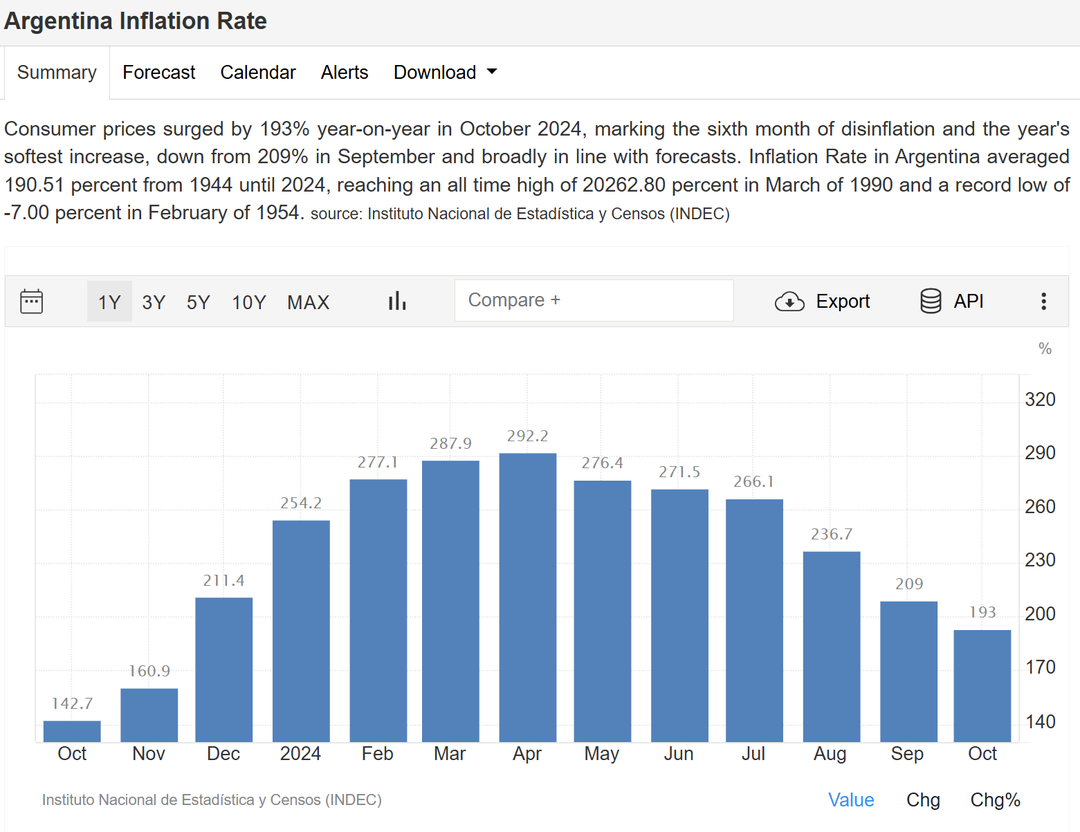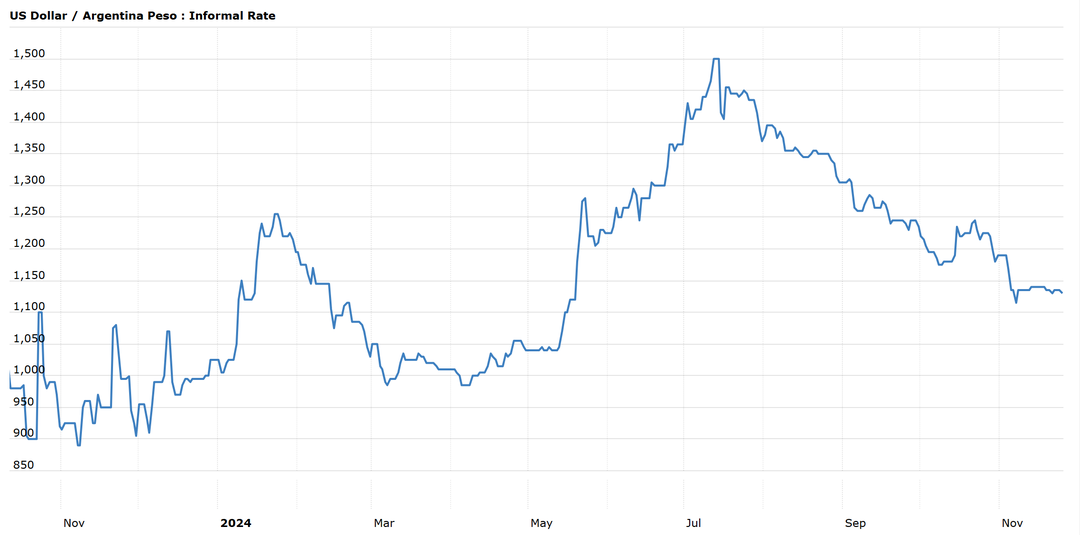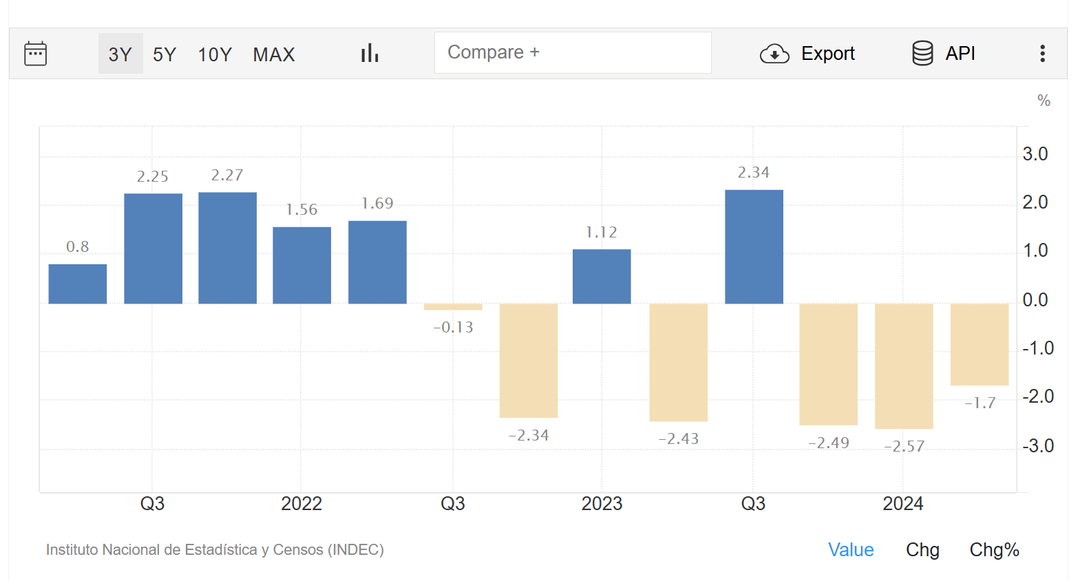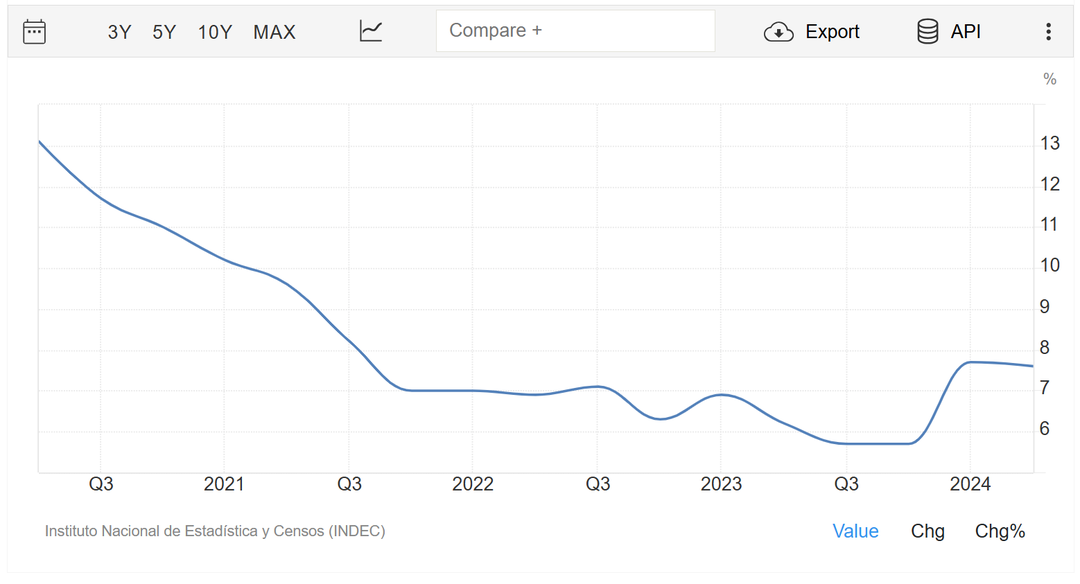Libertarianism in Practice Evaluating Javier Mileis First Year in Argentina
Libertarianism in Practice: Evaluating Javier Milei's First Year in Argentina
As Argentina approaches the one-year mark under the presidency of Javier Milei, a right-wing libertarian and populist who took office in December 2023, it's time to take stock of the impact of his economic policies.

As Argentina approaches the one-year mark under the presidency of Javier Milei, a right-wing libertarian and populist who took office in December 2023, it's time to take stock of the impact of his economic policies. With a year of governance under his belt, we can now assess the effects of his agenda on the country and its people. Elected on a platform of radical neoliberal reforms, Milei promised to eradicate the country's chronic inflation and economic instability. However, nearly a year into his presidency, it has become increasingly evident that his approach has exacerbated rather than alleviated the economic woes facing Argentina.
1. Austerity Measures and Public Discontent
One of the hallmarks of Milei's administration has been the implementation of severe austerity measures aimed at reducing public spending. While proponents argue that such cuts are necessary to stabilize the economy, the consequences have been devastating for many Argentinians. Social programs that provided essential support to the most vulnerable populations have been slashed, resulting in increased poverty and social unrest. At the close of 2023, just before Milei’s inauguration, Argentina’s poverty rate stood at 41.7%. However, just six months after the introduction of these neoliberal policy reforms, this figure surged to over 53%. This alarming increase in poverty is a direct result of the erosion of purchasing power and the lack of social safety nets, leaving millions struggling to meet basic needs. The societal fallout from these austerity measures is palpable, as protests erupt across the country, highlighting widespread discontent with Milei's policies.
2. Inflation and Currency Devaluation
Milei's radical approach to tackling inflation has included a series of controversial monetary policies, such as more dollarization and aggressive official exchange rate hikes. While the intention may have been to stabilize the peso, these measures have instead led to further devaluation of the currency. In November 2023, just before Milei took office, Argentina’s annual inflation rate was 160%. By October 2024, nearly a year into his administration, this rate had surged to an alarming 193%. During this time, the exchange rate for the dollar in Argentina's informal market skyrocketed from approximately 900 pesos to over 1,130 pesos. The official exchange rate also experienced a significant increase, rising from 400 pesos to 1,000 pesos. This steep decline in currency value has resulted in further erosion of purchasing power for everyday Argentinians and contributed to declining living standards and increasing economic despair.

Rising Inflation

Currency Devaluation
3. Widening Inequality
Perhaps one of the most concerning outcomes of Milei's policies is the widening gap between the wealthy and the poor. The Gini coefficient—a measure of income inequality—has reached its highest level since 2005, signaling a troubling trend towards greater economic disparity. The neoliberal agenda often prioritizes corporate interests and market forces over social equity, and in Argentina, this has manifested in an environment where the rich get richer while the poor suffer disproportionately. The Bloomberg headline describing Milei’s shock therapy as fueling "wild inequality" captures this reality succinctly.
4. Unemployment and Economic Contraction
Under Javier Milei's presidency, Argentina has faced negative economic growth each quarter in 2024, with an overall decline projected at 4% for the year. This marks a significant reversal from the two years prior to his administration, during which the country experienced positive growth in several quarters. Since 2020, Argentina had seen a steady decline in unemployment; however, Milei's focus on deregulation and austerity has reversed this trend, leading to an increase in joblessness. As businesses struggle to adapt to the harsh realities of Milei’s economic reforms, the unemployment rate continues to climb, leaving many without stable employment opportunities.

Negative economic growth

Rising Unemployment Rates
While economic statistics are often used to measure the success or failure of government policies, they fail to capture the profound human suffering that accompanies widespread economic hardship. Under Milei’s administration, Argentina’s citizens have borne the brunt of a neoliberal agenda that has failed to deliver on its promises.
Milei’s economic vision has thus far failed to stabilize the Argentine economy. Rather than addressing the root causes of the nation’s economic instability, his radical neoliberal policies have exacerbated existing problems, leaving millions to suffer in silence. The austerity measures have led to a devastating increase in poverty and social unrest, while inflation and currency devaluation continue to erode the standard of living for ordinary citizens. Neoliberalism has once again promised heaven but delivered hell, revealing its ruthless nature and undermining the foundations of livelihoods while sowing the seeds of inequality in its wake.
It is evident that the current trajectory—characterized by the rigid application of neoliberal dogma—is unsustainable. Argentina needs a more inclusive and sustainable economic strategy that prioritizes the well-being of all its citizens. Instead of clinging to ideological tenets that have proven detrimental, the government must shift its focus from market-driven solutions to policies that promote social equity and economic stability. Only through comprehensive and thoughtful reforms can Argentina hope to recover from this crisis and build a more equitable future for all.
Argentina should nationalize its natural resources that have been privatized. As one of the Latin American countries most exposed to privatization and appropriation by large transnational corporations, Argentina faces significant challenges. For example, it is the fourth-largest petroleum producer in Latin America. However, by privatizing its petroleum sector and transferring control to foreign companies, Argentina has compromised its ability to pursue an autonomous economic policy.
Argentina should de-dollarize its economy. The peso should be the sole currency performing the three functions of money: medium of exchange, store of value, and unit of account, within its territory.
The state should exercise full control over foreign exchange revenues and expenditures. All exporters should deposit 100% of their foreign currency earnings with the Argentine Central Bank at a fixed rate. The bank should then allocate this foreign exchange at the same rate, prioritizing imports that benefit domestic producers and consumers. Information technology should be utilized to monitor trends in goods and money flows, with strict measures in place to prevent any diversions.
In conclusion, Javier Milei’s first year in office has underscored the limitations and consequences of adhering strictly to neoliberal policies in Argentina. The exacerbation of economic challenges such as inflation, poverty, and unemployment highlights the urgent need for a paradigm shift. For Argentina to forge a more resilient and equitable future, it must reconsider its approach by reclaiming control over its natural resources, stabilizing its currency through de-dollarization, and ensuring that foreign exchange policies support domestic growth. An inclusive economic strategy that values social equity over rigid market ideologies will be crucial in restoring economic stability and improving the lives of all Argentinians. Only then can the nation hope to mitigate the divisive effects of economic disparity and build a sustainable path forward. True prosperity is born not from the strength of the market, but from the might of the state, guiding with purpose and vision.
source: tehrantimes.com